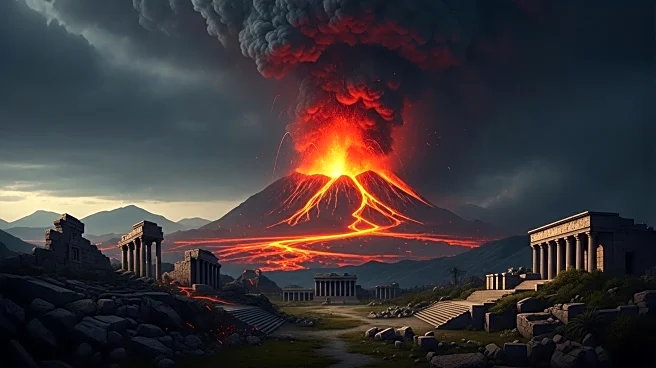What's Happening?
Research suggests that volcanic eruptions and changes in solar activity may have contributed to social upheavals, including the French Revolution. The study examined historical records from 1250 to 1860, correlating periods of extreme weather during the Little Ice Age with increased rebellions. The Little Ice Age was marked by significant drops in temperature and precipitation, affecting agriculture and leading to food shortages. Researchers found that colder phases and major volcanic eruptions were statistically linked to social chaos, with grain price spikes further exacerbating unrest.
Why It's Important?
Understanding the historical impact of climate on social stability provides insights into current and future challenges posed by climate change. The study highlights how environmental stressors can lead to societal disruptions, emphasizing the importance of resilience and adaptation. As climate change continues to affect global weather patterns, similar dynamics could influence modern societies, potentially leading to increased social and political tensions.
Beyond the Headlines
The research underscores the complex interplay between environmental conditions and human societies. While climate change alone may not directly cause rebellions, it can create conditions that exacerbate existing social grievances. This historical perspective offers a cautionary tale for contemporary policymakers, emphasizing the need for proactive measures to mitigate the impacts of climate change on vulnerable populations.









